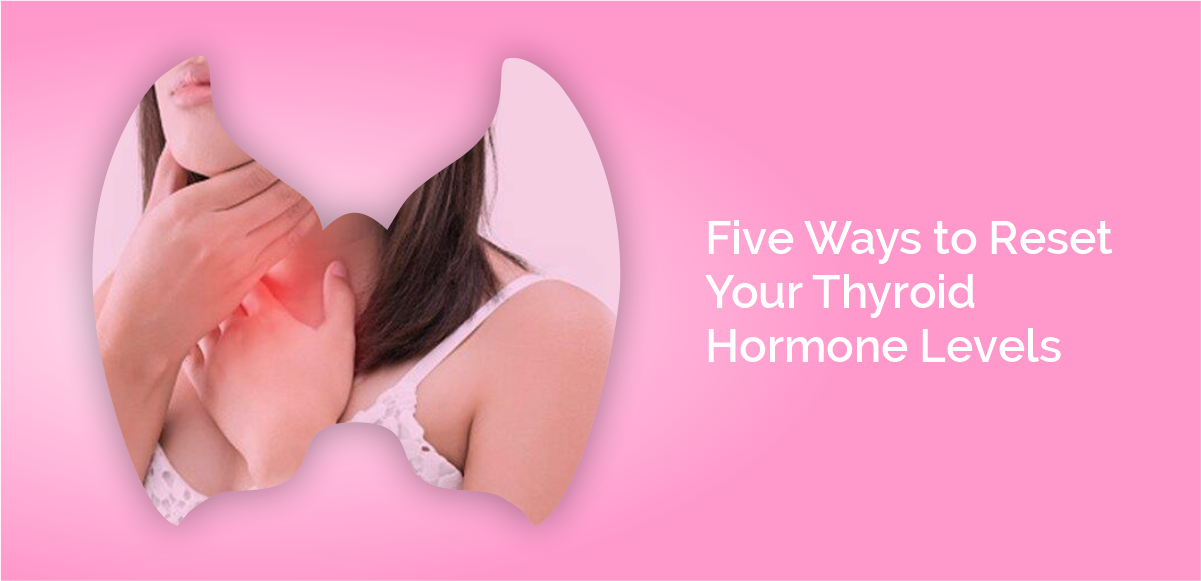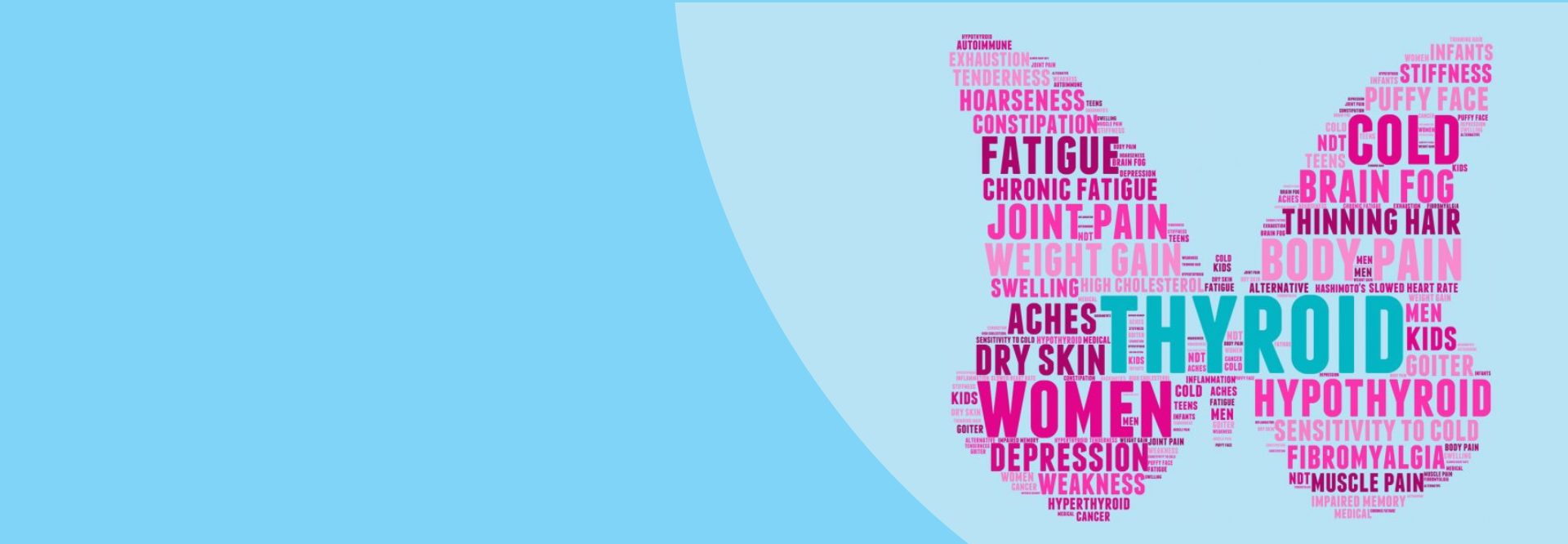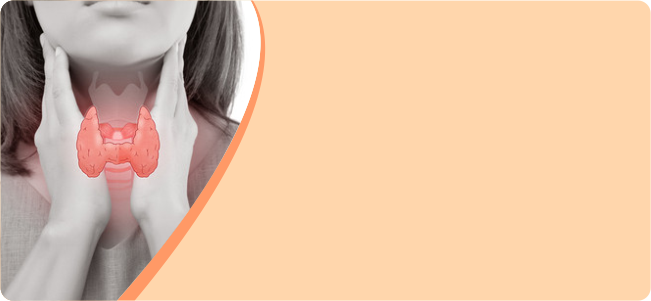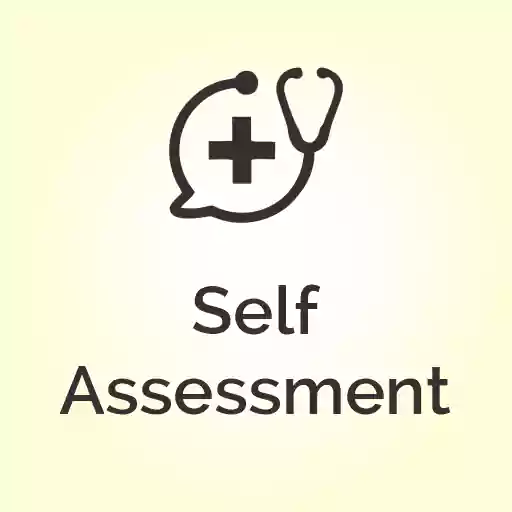Introduction
The thyroid gland is located in the centre of the lower neck and is responsible for growth, metabolism (which controls how your body cells use energy from the food you consume), etc. It also affects your heart rate and temperature levels. It carries out all of these functions via the hormones called thyroid hormones. Thyroid disorders occur when there is either an increase or decrease in the secretion of these thyroid hormones. Two types of thyroid disease are - hypothyroidism and hyperthyroidism.
Hypothyroidism is a common thyroid disorder that occurs due to a deficiency of hormones secreted through the gland. Deficiency of thyroid hormone can lead to a sluggish metabolism due to the slowing down of vital processes in your body. Also known as underactive thyroid disease, it affects the skin, bones, heart, and other body parts.
On the other hand, hyperthyroidism is a thyroid disorder where the thyroid is overactive due to increased thyroxine hormone secretion. It accelerates the metabolism, causing your body to lose weight drastically while also making your heart rate irregular.
Causes of HypothyroidismSedentary lifestyle, excessive stress, poor nutrition, obesity are all risk factors which predispose one to developing hypothyroid. Apart from lifestyle, pre existing comorbidities increased the risk of hypothyroidism. Hypothyroidism is also caused due to Hashimoto’s thyroiditis or inflammation of the thyroid gland. It is an autoimmune disorder that occurs due to the overactivity of antibodies. Here, your body’s immune response is so severe that antibodies attack the thyroid gland and affect the secretion of vital hormones. Viral infections can also cause thyroiditis.
Other causes of thyroid disorders include:
Thyroid inflammation
Congenital hypothyroidism (underdeveloped gland from birth)
Pituitary gland damage, it’s responsible for producing thyroid-stimulating hormone (TSH)
Lack of Thyrotropin-releasing hormone (TRH), which is responsible forthe secretion of TSH in the pituitary gland.
Exposure to radiation around the neck due to treatment of hyperthyroidism |
|
Causes of HyperthyroidismHyperthyroidism is caused by conditions like Graves' disease, Plummer's disease and thyroiditis. The thyroid gland produces two main hormones, thyroxine(T4) and triiodothyronine(T3), which influence cellular activity in your body. They maintain the rate at which the body processes fats, carbohydrates, control temperature, and protein regulation. An excess of thyroxine causes a thyroid disorder called hyperthyroidism. Increased levels of thyroxine can be caused due to autoimmune disorder caused by Grave’s disease. Another significant cause of higher T4 is hyperfunctioning of thyroid nodules where noncancerous lumps are formed, enlarging the thyroid. Hyperthyroidism can also be due to underlying malignancy or cancer which needs to be evaluated by lab tests. |
|
Causes Of Diabetes Disease
Causes of HypothyroidismSedentary lifestyle, excessive stress, poor nutrition, obesity are all risk factors which predispose one to developing hypothyroid. Apart from lifestyle, pre existing comorbidities increased the risk of hypothyroidism. Hypothyroidism is also caused due to Hashimoto’s thyroiditis or inflammation of the thyroid gland. It is an autoimmune disorder that occurs due to the overactivity of antibodies. Here, your body’s immune response is so severe that antibodies attack the thyroid gland and affect the secretion of vital hormones. Viral infections can also cause thyroiditis.
Other causes of thyroid disorders include:
Thyroid inflammation
Congenital hypothyroidism (underdeveloped gland from birth)
Pituitary gland damage, it’s responsible for producing thyroid-stimulating hormone (TSH)
Lack of Thyrotropin-releasing hormone (TRH), which is responsible forthe secretion of TSH in the pituitary gland.
Exposure to radiation around the neck due to treatment of hyperthyroidism
Causes of HyperthyroidismHyperthyroidism is caused by conditions like Graves' disease, Plummer's disease and thyroiditis. The thyroid gland produces two main hormones, thyroxine(T4) and triiodothyronine(T3), which influence cellular activity in your body. They maintain the rate at which the body processes fats, carbohydrates, control temperature, and protein regulation. An excess of thyroxine causes a thyroid disorder called hyperthyroidism. Increased levels of thyroxine can be caused due to autoimmune disorder caused by Grave’s disease. Another significant cause of higher T4 is hyperfunctioning of thyroid nodules where noncancerous lumps are formed, enlarging the thyroid. Hyperthyroidism can also be due to underlying malignancy or cancer which needs to be evaluated by lab tests. |
Thyroid disease symptoms
Hypothyroidism or hyperthyroidism can be deceptive in the early stages. There may not be any early warning signs of thyroid problems. However, some common thyroid disease symptoms that can be indicators are:
Sudden weight gain/loss | Irregular menstrual cycle in females | Hair loss | Constipation | Fatigue | Dry skin or sweaty palms | Heat or cold intolerance | Depression | Increased cholesterol levels | Muscle pain and stiffness | Swollen face | Protruding eyes | Slow or irregular heart rate | Goitre - swelling in front of the neck
![]()
Diagnosis of HypothyroidismIf you have symptoms of hypothyroidism or hyperthyroidism, doctors may ask you to undergo thyroid profile blood tests that will help check the levels of 3 major hormones:
Thyroid-stimulating hormone (TSH)
Thyroid-stimulating hormone (TSH) - A blood test that determines the levels of thyroid-stimulating hormone. It is secreted by the hypothalamus of the brain and triggers the thyroid gland to secrete its hormones (T3 and T4). Lower TSH levels indicate hyperthyroidism, while higher levels indicate hypothyroidism.
Total Thyroxine tests (T4) - A blood test that determines Thyroxine levels. This hormone is secreted by the thyroid gland and carries out all the functions. Lower T4 levels indicate hypothyroidism, while higher levels indicate hyperthyroidism.
Total Triiodothyronine (T3) - A blood test that determines Triiodothyronine levels. This hormone is secreted by the thyroid gland and is converted into thyroxine in the blood to carry out all the functions. It’s a blood test that helps determine the severity of hyperthyroidism.
The above 3 tests together comprise the thyroid profile test. However for more accuracy, doctors can suggest to check free form of thyroid hormones by ordering the below tests.
Free Thyroxine (FT4) - A diagnostic test that helps eliminate the effect of proteins that naturally binds thyroxine and blocks the measurement of hormone levels.
Free Triiodothyronine (FT3) - This blood test helps eliminate proteins that naturally bind Triiodothyronine. This gives a true picture of the disease condition.
Other blood tests that may be needed for the diagnosis of thyroid
|
Thyroid Disease Treatment
Preventive Measures
Avoid processed food as it can alter thyroid hormone production through chemical reactions with digestive enzymes. Avoid soy intake as it can affect hormone production. Stop smoking as toxins released during the activity affects the thyroid gland. Reduce stress as it can cause a hormonal imbalance
Lifestyle Changes
Patients with thyroid disorders must eat a diet with high magnesium, calcium, proteins, and iodine. Include foods rich in vitamins A, B, and C. Add yoghurt, seaweed, nuts, milk, chicken, fish, eggs, berries, cauliflower, and kale to your dietInclude shellfish, saltwater fish, eggs, dairy products, seaweed and other sources of iodine.
Medical Treatment
If a patient suffers from hyperthyroidism, doctors may suggest radioactive iodine treatment or prescribe anti-thyroid medication to subdue overactive hormones. For hypothyroidism, a doctor may prescribe a supplement of hormones like levothyroxine. A patient who has an under active thyroid disorder may have to take replacement hormones for life
Assurance by NanoHealth Disease Management ProgramAssurance by NanoHealth helps in timely identification, diagnosis and treatment by pairing you with the right care providers. Our disease care management programs include: 1. Regular interactions with your health coach for treatment adherence. Assurance is with you every step of the way until maximum health and wellness are achieved. |

Thyroid care is important for optimal metabolic control. Read more to know about thyroid, hyperthyroid, hypothyroid, and tips for a cure.

Women’s chronic diseases like thyroid, breast cancer, diabetes, and heart diseases have been on a continuous rise. Read on to know more about these.
















